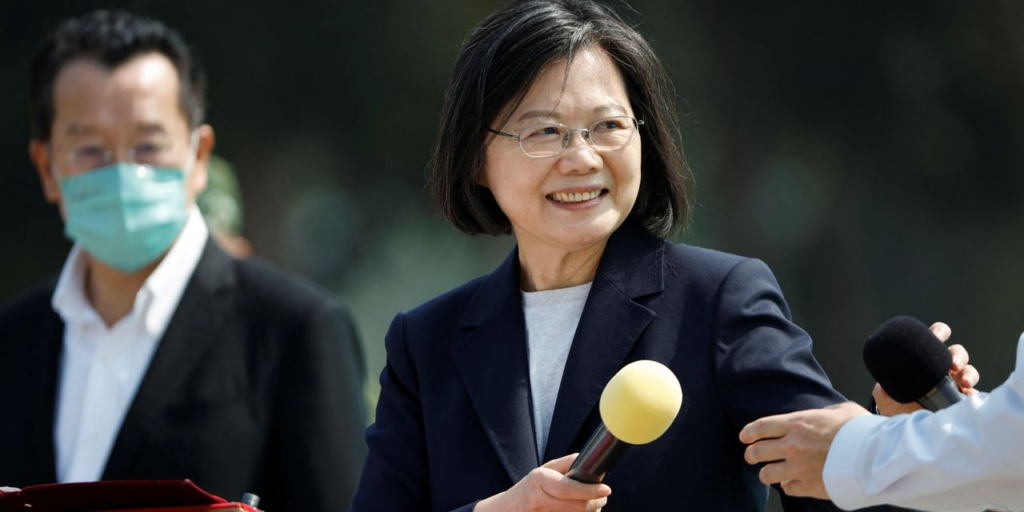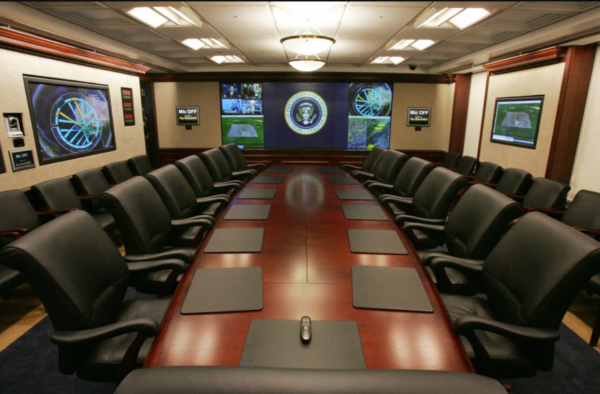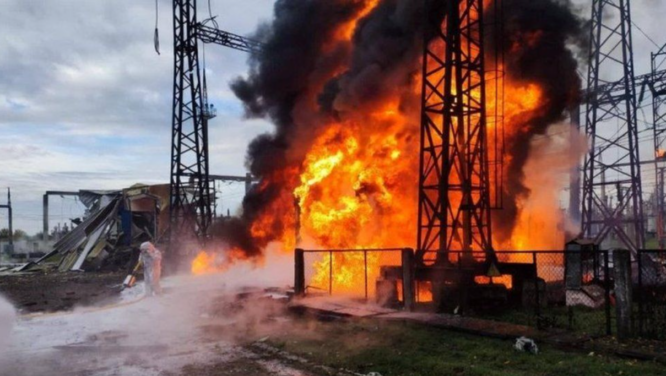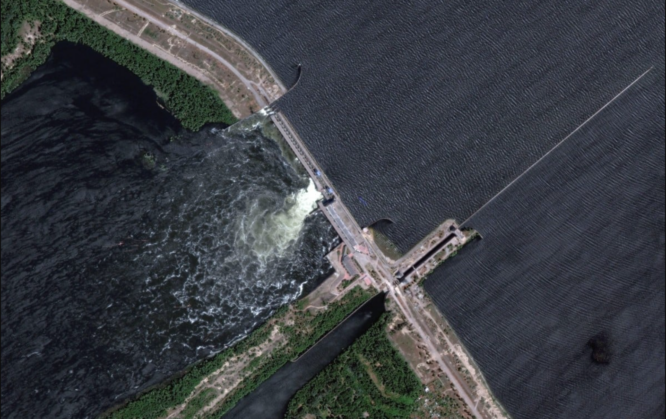Tsai Ing-wen and McCarthy met at the Ronald Reagan Presidential Library in Southern California this week. Taiwan’s leader has met with a U.S. House speaker twice in less than a year, and China is again threatening reprisal.
Asian tensions are rising. America fears Beijing would invade Taiwan if uncontrolled. Xi Jinping’s timetable and whether local and international variables might shorten or prolong it are hotly debated. Nonetheless, deterring Chinese military aggressiveness in the Indo-Pacific is nearing a critical phase.
A Chinese invasion of Taiwan would disrupt global trade, wreck supply lines, threaten a vibrant Asian democracy, put enormous pressure on America’s closest friends, and virtually certainly drive the US and China into direct conflict.
U.S. policy must prevent Beijing from such a costly option.

Military preparation with Taiwan and other regional allies is required but not sufficient to maximize deterrence. Economic contingency planning is vital. Regrettably, the U.S. government does not do this routinely. The State Department and Treasury scarcely have enough sanctions and economic statecraft professionals to operate more than 30 sanctions programs, let alone plan for future situations.
Ukraine last February, he encountered more robust Ukrainian military opposition than expected. He also faced a great coalition of countries that quickly united to cut Russia’s economic ties. The biggest surprise of the Russia-Ukraine war was the solidarity of the US and its democratic allies in launching an economic campaign against Putin.
The Biden administration formed a coalition of significant U.S. partners in Europe and Asia to impose mounting costs on Russia’s economy, starting with a direct attack on the country’s banking system and progressing to squeezing the Kremlin’s oil earnings, Russia’s lifeblood. Sanctions have escalated quicker than predicted. A decade of US-allied Russia sanctions cooperation led to this result. US formed a Russia sanctions contact group with G-7 and other allies after Putin invaded Ukraine in 2014. While less prolific, the organization survived the Trump years. Hence, when the US became concerned in late 2021 that Putin may be plotting another invasion, it had a ready-made network of friends to coordinate further sanctions.
Despite this great job, sanctions failed to dissuade Putin from invading Ukraine. Its failure may be due to the sanctions’ surprising strength. Putin appears to have underestimated the US and its allies’ sanctions. The Russian central bank retained almost half of its foreign exchange reserves in dollars, euros, pounds, and yen when the US and others slapped sanctions on it less than a week after Putin launched the invasion. If Putin had expected US and allied sanctions, Russia’s central bank would have done more to diversify its holdings away from these currencies. Hence, Putin’s war fund was depleted within days of the fight.
This mistake teaches U.S. authorities how to prevent a Chinese invasion of Taiwan. The US and its partners must make their red lines and the consequences of crossing them plain for sanctions to discourage China. Xi can see from Putin’s invasion of Ukraine that a Chinese invasion of Taiwan would hurt his country’s economy. But, China has considerably larger economic power than Russia, so he may doubt that the US and its allies will impose penalties as severe as those against Moscow. Xi might calculate that conquering Taiwan will offset the costs of sanctions, like Putin did with Ukraine. So, U.S. strategy toward China should focus on changing Xi’s calculation.

Putin’s tragic choice to invade
Once Putin invaded Ukraine despite Biden’s “swift and harsh repercussions,” the sanctions campaign’s purpose changed. Washington rightly predicted that sanctions would not influence Putin’s thinking as Russia’s tanks approached Kyiv. Putin would never leave Ukraine for sanctions relief. Battle would determine the war. In the last year, U.S. policy has prioritized military aid to Ukraine.
Attrition—not changing Putin’s mind—became the purpose of sanctions. Sanctions cause attrition in a year. Russia struggled to replenish its army with precision-guided bombs and equipment in 2022 as its economy shrank by 3%. The Kremlin relaxed air bag and anti-lock braking requirements because domestic vehicle production failed. Putin has had to beg Iran’s supreme leader for drones and other military equipment, illustrating sanctions’ attritional impact.
Sanctions may affect Russia’s military performance in Ukraine, but not significantly. The sanctions arrived too late to affect the conflict, but they will limit Putin’s imperial ambitions. Before Putin invaded Ukraine, attritional sanctions would have slowed Russia’s military buildup.
Chinese policy should not use attritional measures once Xi invades Taiwan. Last October’s massive export limits on China’s semiconductor industry indicate that the Biden administration understands this. Their objectives were constrained to a single underlying technology. The grim truth is that if Washington is serious about diminishing China’s military capabilities, it will need to broaden its focus beyond a few high-tech components—painful though that may be for U.S. investors and industries that have grown reliant on China.
Its banks own more than 30 times Russia’s assets and its economy is 10 times larger. The People’s Bank of China has more than $3 trillion in foreign exchange reserves—five times Putin’s war chest at the start of the Russia-Ukraine war. Sanctions on China would devastate the global economy, making life harder for Beijing, Americans, and everyone else.

China’s worldwide economic dominance puts it vulnerable to sanctions, especially in the banking and technological sectors. Washington and its partners must carefully prepare actions that will inflict greater costs on China than on themselves, establish contingency plans to limit economic aftershocks, and unify on these difficult steps before Beijing attempts to recapture Taiwan by force.
Economic warfare is difficult against China.
For these reasons, the US and its allies must prepare. In the case of a Chinese invasion of Taiwan, U.S. policymakers from the State, Treasury, Commerce, and other agencies must collaborate on a list of penalties. Lists aren’t enough. U.S. authorities must carefully evaluate these possibilities, forecast probable outcomes, and develop policy measures to counteract unfavorable outcomes.
The Defense Department routinely plans such comprehensive contingencies. But, U.S. government economic agencies lack the resources and administrative structures to conduct such projects. Change this. If China invaded Taiwan tomorrow, the U.S. would use economic warfare. Yet, without adequate planning, the US and its partners would race to respond, committing its sanctions drive to incrementalism and possibly emboldening Xi.
To avert this, the US should immediately form an Economic Contingency Planning Committee (ECPC) to plan for future economic fights. It should first develop and test sanctions to counter a Chinese invasion of Taiwan. The State, Treasury, Commerce, and CIA should second staff and funding to the ECPC. Congress should legislate the ECPC and fund it. The 2022 U.S.-China Economic and Security Review Commission recommended this to Congress. If Congress doesn’t act soon, the Biden administration should establish the ECPC via executive order.
The ECPC should collaborate with friends outside internal contingency preparedness. The Russia sanctions contact group helped the Biden administration as Putin began amassing forces near Ukraine. Washington should create a China-focused “coalition of the willing” and allow the ECPC to share its sanctions alternatives and analyses. The partnership might eventually declare unified policies. If China invades Taiwan, members might list the economic implications.
If Xi, like Putin, underestimates the US and its allies’ willingness to punish China economically for seizing Taiwan, it would be tragic. Policymakers must swiftly ensure that Xi fully understands the risks of such a risky gamble. The more determined and organized the procedures are to impose costs on China, the more likely Beijing will decide it is not worth the price. This must be done quickly because a Chinese invasion of Taiwan would be far more time-sensitive than the Russian invasion of Ukraine. Taiwan is an island, making it difficult to equip and restock after an invasion. Iterative, learn-as-you-go may be impossible.
It’s hard. China’s economy dwarfs Russia’s in size, depth, and diversity. China imports $3 trillion and is the top commercial partner of 120 nations, whereas Russia imports $400 billion and is the largest trading partner of just a few smaller economies, such as Belarus, Armenia, and Kazakhstan. China’s economic might is greater than Russia’s, but not unlimited. US and democratic allies in Asia and Europe account for over half of global GDP. China is wary of the world’s industrialized countries’ combined power.
Nevertheless, if those countries cooperate, that power counts. If the right internal bureaucratic and external coordinating mechanisms are in place today, sheer economic strength may become collective deterrent.
Before Russia attacked Ukraine, dissuade Russia. After punishment. China must act now.




